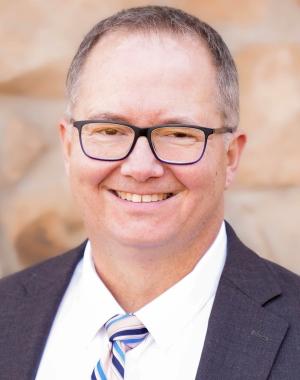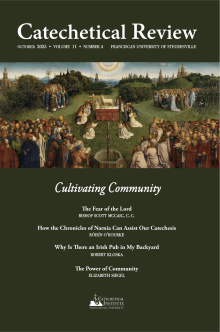 Last spring, most of my family spent a semester at Franciscan University of Steubenville’s beautiful campus in Gaming, Austria. As an introvert, one of my worries going into the semester was getting to know a whole new group of coworkers and joining their community as an outsider. Never have I been more delighted to discover my worries were unwarranted.We were picked up at the airport by a beautiful and generous family. When we arrived to Gaming late at night, a benevolent philosophy professor insisted on bringing in our bags. There was warm pumpkin soup and tea waiting for us at the dinner table. And with a burst of joy and energy, four amazing Franciscan TOR sisters rushed into the house with hugs and words of welcome. Over the course of the next four months, the faculty and staff there became the dearest of friends. Never have I experienced friendship and community in such a concentrated way.
Last spring, most of my family spent a semester at Franciscan University of Steubenville’s beautiful campus in Gaming, Austria. As an introvert, one of my worries going into the semester was getting to know a whole new group of coworkers and joining their community as an outsider. Never have I been more delighted to discover my worries were unwarranted.We were picked up at the airport by a beautiful and generous family. When we arrived to Gaming late at night, a benevolent philosophy professor insisted on bringing in our bags. There was warm pumpkin soup and tea waiting for us at the dinner table. And with a burst of joy and energy, four amazing Franciscan TOR sisters rushed into the house with hugs and words of welcome. Over the course of the next four months, the faculty and staff there became the dearest of friends. Never have I experienced friendship and community in such a concentrated way.
For most of us, our current cultural climate is one of stark isolation. With families spread out geographically more than ever, and with screens drawing us away from real human interaction, it is easy to live significantly withdrawn from good relationships. Without the cultural supports for community that previous generations enjoyed, unless we take intentional steps toward others, it’s very easy to lead a solitary and lonely life.
And yet, we human beings were made for communion with others. We know theologically that we were made for union with God (who is a communion of Trinitarian persons) and with all the baptized who are joined to him. And on a natural human level, we know that good relationships are critical to the flourishing of every human being—even if finding such authentic community can be a bewildering quest today.
The rest of this online article is available for current Guild members.
[1] John Paul II, Christifideles Laici, no. 32.
[2] J.R.R. Tolkien, The Two Towers (Ballantine Books, 1982), 117.
Art Credit: Kartause – Gaming, C.Stadler/Bwag, 13 July 2018, CC BY-SA 4.0; The symbolic fresco Jesus gives the communion in church, Adobe Stock.
This article originally appeared on pages 4 - 8 of the print edition.
This article is from The Catechetical Review (Online Edition ISSN 2379-6324) and may be copied for catechetical purposes only. It may not be reprinted in another published work without the permission of The Catechetical Review by contacting [email protected]


















